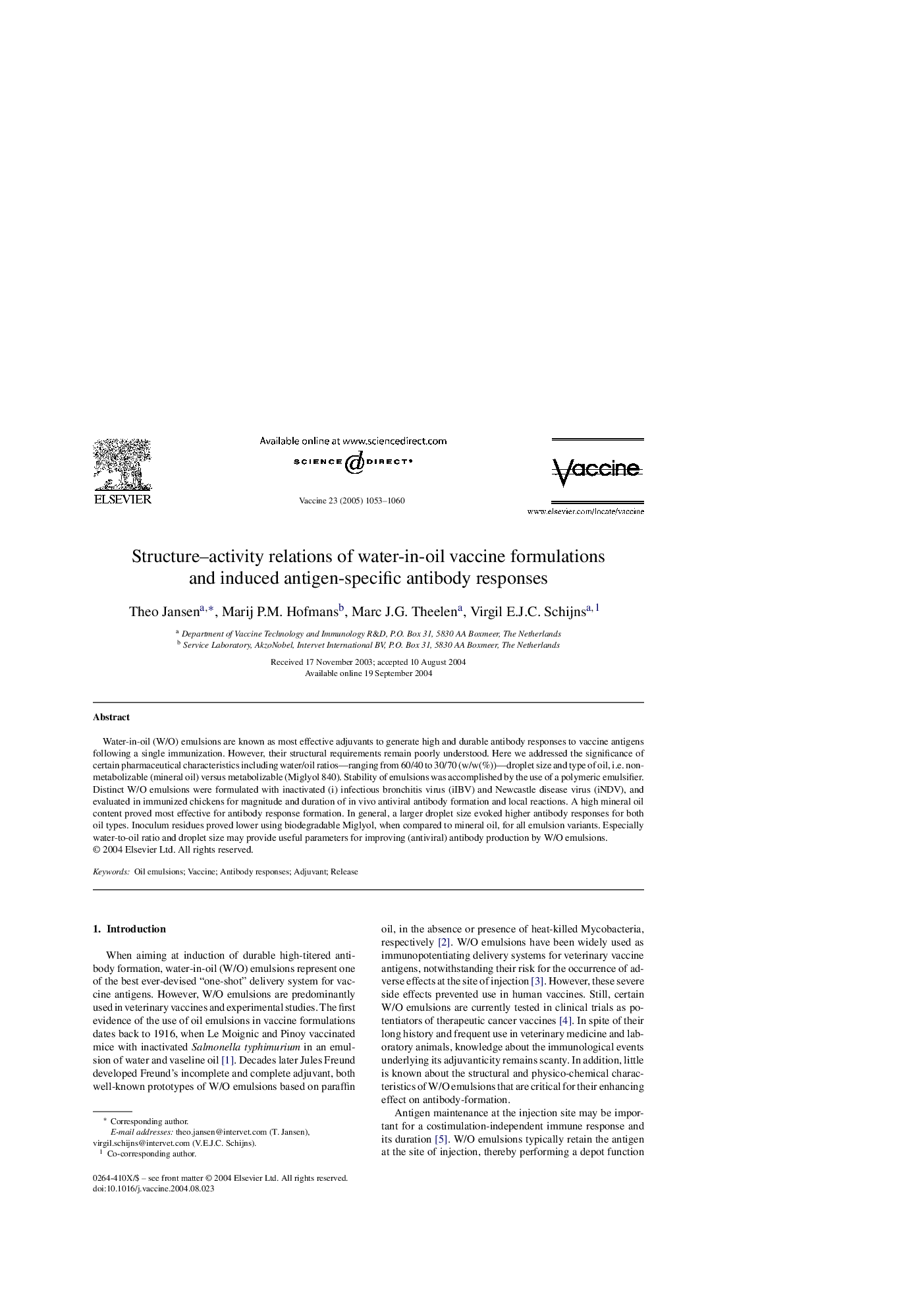| Article ID | Journal | Published Year | Pages | File Type |
|---|---|---|---|---|
| 8969830 | Vaccine | 2005 | 8 Pages |
Abstract
Water-in-oil (W/O) emulsions are known as most effective adjuvants to generate high and durable antibody responses to vaccine antigens following a single immunization. However, their structural requirements remain poorly understood. Here we addressed the significance of certain pharmaceutical characteristics including water/oil ratios-ranging from 60/40 to 30/70 (w/w(%))-droplet size and type of oil, i.e. non-metabolizable (mineral oil) versus metabolizable (Miglyol 840). Stability of emulsions was accomplished by the use of a polymeric emulsifier. Distinct W/O emulsions were formulated with inactivated (i) infectious bronchitis virus (iIBV) and Newcastle disease virus (iNDV), and evaluated in immunized chickens for magnitude and duration of in vivo antiviral antibody formation and local reactions. A high mineral oil content proved most effective for antibody response formation. In general, a larger droplet size evoked higher antibody responses for both oil types. Inoculum residues proved lower using biodegradable Miglyol, when compared to mineral oil, for all emulsion variants. Especially water-to-oil ratio and droplet size may provide useful parameters for improving (antiviral) antibody production by W/O emulsions.
Related Topics
Life Sciences
Immunology and Microbiology
Immunology
Authors
Theo Jansen, Marij P.M. Hofmans, Marc J.G. Theelen, Virgil E.J.C. Schijns,
